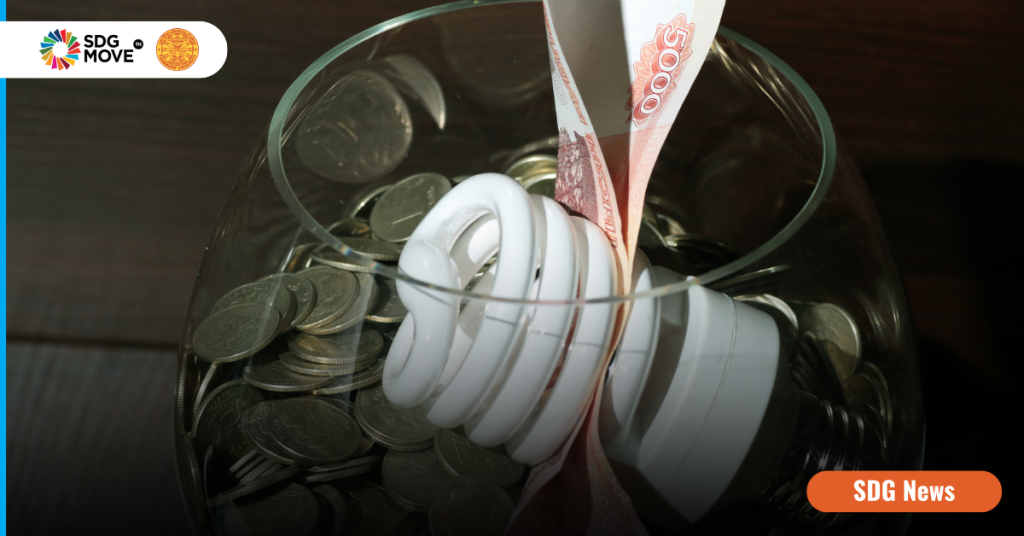#ExpensiveElectricity has once again become a widely discussed issue in Thailand, both in public forums and across social media. The problem of high electricity bills has been a longstanding issue, but recent events have reignited the conversation about energy policy, fairness, and transparency. One of the primary considerations to examine is how the government purchases electricity from private companies and whether the public is required to bear an unfair burden.
At the centre of the controversy is the Energy Regulatory Commission of Thailand, or ERC, an independent agency responsible for regulating electricity and natural gas in the country. In its latest announcement, the ERC approved the procurement of 3,600 megawatts of electricity from renewable sources. To put this into context, this amount of energy is sufficient to power over 2.5 million homes. However, what has caused widespread concern is that the selection process involved no competitive bidding.
Instead, the electricity will be purchased under fixed-rate contracts known as Power Purchase Agreements (PPAs), which will last for 25 years. This method has been criticised for several reasons. Without a bidding process, energy companies are not required to compete on price, meaning the electricity may be purchased at higher-than-necessary costs. These higher costs will ultimately be passed on to the public through monthly electricity bills. Furthermore, because the price is fixed for 25 years, the government may continue paying the same rate even if the cost of renewable energy continues to decline, as is expected. This reduces flexibility and raises serious concerns about long-term affordability and public accountability.
On 17 December 2024, the Energy Regulatory Commission (ERC) announced that 72 private companies had been selected to supply electricity to the state through the Feed-in Tariff (FiT) scheme for the years 2022 to 2030. Under the FiT model, the government guarantees a fixed price for electricity generated from renewable sources, often higher than market prices, to encourage private sector investment in clean energy. The selected companies are expected to supply 2,145 megawatts of electricity from sources such as solar and wind, which do not require fuel. This amount of power is enough to supply approximately 1.5 million homes, showing the scale and importance of this procurement.
Initially, all companies were required to sign the power purchase agreements by 30 December 2024. However, after concerns were raised about transparency and fairness, the National Energy Policy Council, chaired by the Deputy Prime Minister, decided to suspend the signing process and requested that relevant agencies conduct a further review. As of 23 June 2025, the contracts have not yet been signed and remain under review.
While the Feed-in Tariff has been successful in accelerating investment in renewables in many countries, its effectiveness is enhanced when combined with transparent pricing and market competition. Critics argue that in this case, the lack of open bidding undermines the fairness and efficiency of the scheme.
The issue was raised publicly by Mr Natthaphong Ruengpanyawut, a Member of Parliament and leader of the People’s Party, during a press conference on 19 December 2024. He had earlier submitted a live question to the Prime Minister in Parliament. Mr Natthaphong criticised the government’s approach, stating that “renewable energy is becoming more affordable over time.” He warned that locking in high prices today could force the public to pay more than necessary for decades, even if actual production costs decrease. “People may be stuck paying inflated electricity bills for the next 25 years,” he said.
Consumer groups have echoed this concern. The Thailand Consumers Council, which advocates for consumer rights, has called on the government to halt the signing of contracts that lack transparency and disproportionately benefit private interests. The Council is urging the administration to involve the public in energy policymaking, to revise pricing structures, and to promote decentralised energy by allowing households to produce their electricity. One key recommendation is to adjust the pricing mechanism so that small producers can sell electricity to the state at rates equal to those paid to large companies, creating more substantial incentives for public participation.
Disagreement has also emerged within the government itself. Mr Pirapan Salirathavibhaga, Deputy Prime Minister and Minister of Energy, acknowledged that the current procurement process may lack transparency. He submitted an official letter to the ERC requesting the suspension of the 3,600-megawatt procurement. However, the ERC did not respond to the request and proceeded to publish the list of selected companies. This occurred shortly after a meeting of the National Energy Policy Council, chaired by the Prime Minister. The timing has led to renewed scrutiny of the Prime Minister’s position and actions regarding the issue.
Mr Natthaphong also recalled that during the government’s 90-day performance briefing, the Prime Minister had mentioned reducing pipeline charges as a way to lower electricity costs. Yet other key structural issues remain unresolved. Chief among them is the Power Development Plan (PDP), which outlines Thailand’s electricity strategy. Critics argue that the current plan continues to prioritise the construction of large-scale power plants that may exceed actual demand. The process has also lacked meaningful public consultation, raising concerns about whether the long-term energy strategy truly reflects the needs of Thai citizens.
The more significant issue is whether there are alternative, more affordable and participatory options available, and if the government is willing to pursue them. Mr. Natthaphong asked if there were better ways to ensure we have enough energy without placing a burden on the public. Should these be given more importance?
This debate also ties directly into Thailand’s commitments under the Sustainable Development Goals (SDGs). SDG 7 calls for affordable, reliable, sustainable, and modern energy for all. However, affordability and fairness are just as important as clean energy itself. Meanwhile, SDG 16 emphasises transparency, accountability, and public participation in decision-making. The current controversy raises concerns that, without open processes and citizen involvement, even renewable energy transitions may deepen inequality and reduce trust in public institutions. For Thailand to achieve a just energy transition, both environmental and social dimensions must be addressed simultaneously.
Thailand’s energy problems are not new. Governments worldwide are striving to determine how to increase renewable energy in ways that are beneficial for the environment and equitable for the economy. Long-term power contracts are standard, but when they are given out without competition or transparency, they can lock countries into paying excessively for decades.
Thailand’s experience serves as a valuable lesson for the rest of the world as it works towards achieving the Sustainable Development Goals. Being clean energy does not imply that it is fair. The systems behind it must be transparent, equitable, and open to everyone for it to benefit the public truly. This is the only way to make things last, not just in technology but also in the lives of the people who rely on it.

